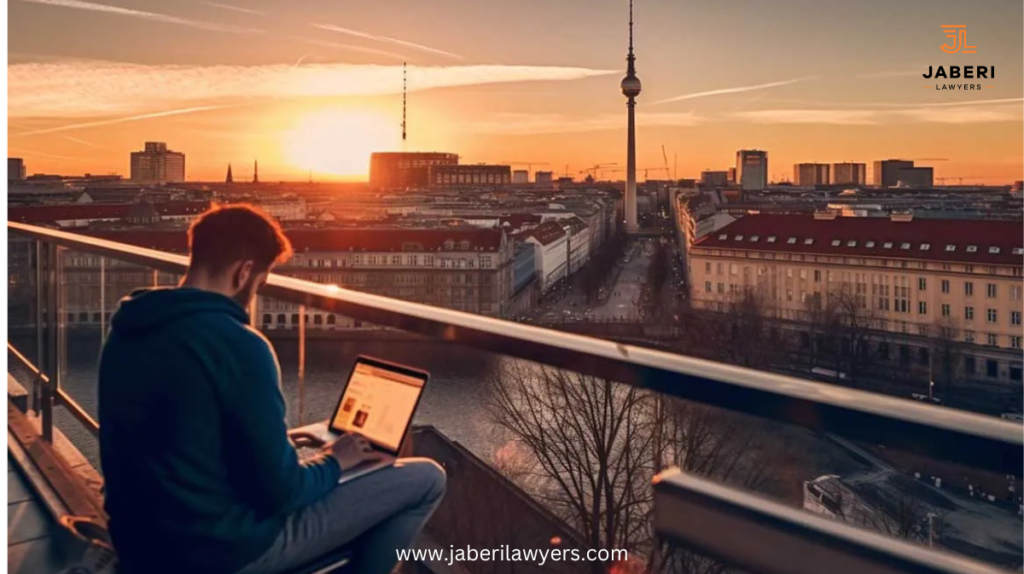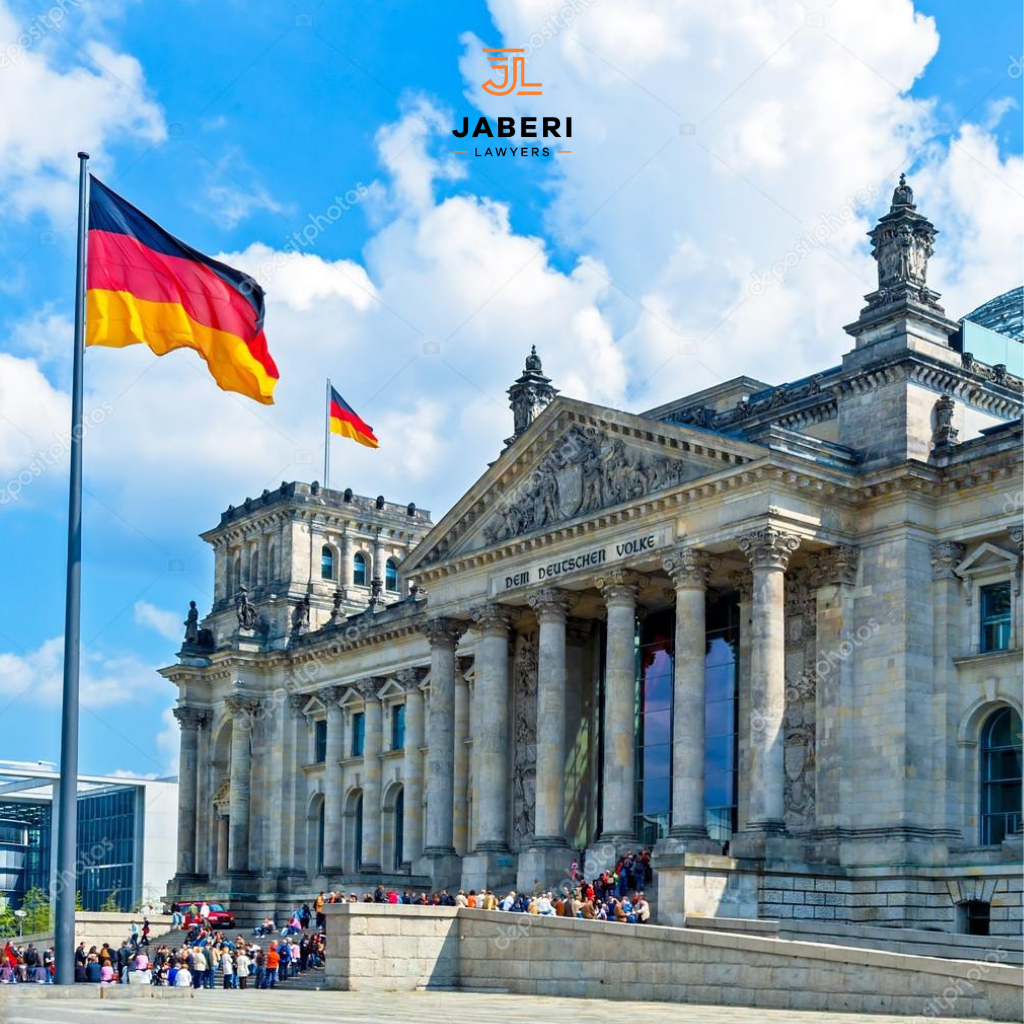Everyday Knowledge for Life in Germany: Your Guide by Jaberi Lawyers.

Many aspects of everyday life in Germany are unique, from store opening hours and waste separation to purchasing a SIM card. Jaberi Lawyers provides answers to the most important questions to help you navigate your life in Germany smoothly.
Public Holidays in Germany
Public holidays in Germany are determined by the federal states, with the exception of the national holiday on 3 October – the Day of German Unity – which applies throughout Germany. Common nationwide holidays include New Year’s Day, Easter, and Christmas. On these days, you do not have to work, and schools are closed. Shops and supermarkets remain closed, allowing families to go on trips or relax. Many public holidays have a religious background, with a sense of peace and quiet expected, especially during Christmas and Easter.
Climate in Germany
Germany has a temperate climate with continental influences, featuring distinct seasons. The average annual temperature is 10.5 degrees Celsius. The coastal regions in the north experience cooler, harsher weather with wind and rain. Southern Germany, with its forests and mountains, experiences an alpine climate in high-altitude areas. Despite being in a temperate zone, Germany enjoys relatively warm weather due to the Gulf Stream, with summer temperatures often rising above 30 degrees Celsius.
Plugs and Sockets in Germany
Germany uses Type F and C plugs, also known as Europlugs. These plugs are compatible with most European sockets and designed for a mains voltage of 220-250 volts. The Schuko Type F plug is used for larger electrical appliances like washing machines. Contour plugs, similar to Europlugs, are used for small appliances.
Shop Opening Hours in Germany
In Germany, shop opening hours vary. Large supermarkets typically open from 7 am to 8 pm, with longer hours in urban areas. Smaller shops may close in the afternoon on Saturdays, and most shops are closed on Sundays and public holidays. Exceptions include petrol stations, railway station shops, and pharmacies, which provide emergency services on Sundays.
Emergency Numbers in Germany
Knowing emergency numbers is crucial:
- 110: Police emergency number for criminal offences or danger.
- 112: Fire brigade and emergency services for fires or acute medical emergencies.
- 116117: Non-emergency medical on-call service for medical help when surgeries are closed.
Emergency calls are free and can be made even without signal, as the phone uses another operator’s network.
Buying a SIM Card
You can purchase a German SIM card in supermarkets, discounters, drugstore chains, mobile phone provider shops, kiosks, and petrol stations. Proof of identity is required to activate the card. If you do not have German documents, contact the consumer advice centre in your federal state. For mobile phone contracts, you need an identity card or passport, bank details, a place of residence in Germany, and sometimes a Schufa report to prove creditworthiness. Contracts usually last 24 months, but prepaid options are available.
Postal System in Germany
Sending mail in Germany is efficient and affordable. Post offices are open into the evening during the week and close at noon on Saturdays. Automated Packstations are open at all times for sending and receiving parcels. Stamps cost between €0.85 and €3.00, depending on size and weight. Within Germany, letters and parcels are delivered within three working days, often faster. Express delivery options are available for urgent mail.
Waste Sorting in Germany
Germany has a strict waste separation system:
- Yellow bin (Gelbe Tonne): Plastic packaging and non-paper/glass items.
- Blue bin (Altpapier): Cardboard and paper waste.
- Black bin (Schwarze Tonne): Residual household waste.
- Green/Brown bin (Grüne/Braune Tonne): Organic waste like food scraps.
Special rules apply to bulky, hazardous, and electronic waste. Recycling depots handle these items, and improper disposal incurs penalties. Drink containers often carry a deposit (Pfand) refunded upon return. Non-deposit glass bottles go to designated bottle banks, with separate containers for different glass colors.
Keeping a Pet in Germany
Pet ownership in Germany involves specific regulations:
- Rental properties: Check tenancy agreements for pet allowances.
- Dog licence fee: Almost all municipalities charge this fee.
- Additional requirements: Some breeds require leashes, muzzles, or liability insurance.
Bringing pets from abroad involves meeting age, vaccination, and other requirements. Local regulations vary, so check online for specifics.
Leisure Activities in Germany
Germany offers various leisure activities:
- Sports clubs: Join to play football or try new sports.
- Adult education centers: Take courses on diverse topics and meet new people.
- Volunteering: Engage in community or charitable activities.
- Local events: Enjoy guided tours, street festivals, concerts, and flea markets.
Indoor activities include visiting museums, cinemas, theatres, and opera houses. Germany’s culinary scene ranges from traditional dishes to international cuisine, with affordable options like bakeries and takeaways.
About Jaberi Lawyers
Jaberi Lawyers are your immigration problem solvers and partners throughout your immigration journey in Germany. We provide comprehensive support to help you settle into German life, offering expert advice and assistance every step of the way. Trust Jaberi Lawyers to guide you through the complexities of immigration and everyday living in Germany.
Related Blogs

Digital Nomads Welcome: The ‘Digital Nomad Visa’ as Your Key to Boundless Work in Germany
The way we work is evolving—becoming more dig ital, flexible, and globally connected. For digital no......

Your Rights Under § 53 AufenthG – Expulsion and Right of Residence Made Simple
Are you or a loved one facing the risk of deportation under Section 53 of the Residence Act? Understanding you......

Investments in Germany: Choosing the Right Path for Your Money
Investments in Germany: Choosing the Right Path for Your Mone Germany offers a wide range of investment opportunities, such as bank......

